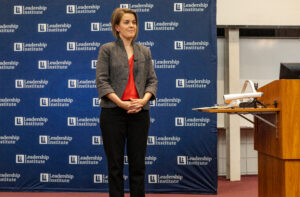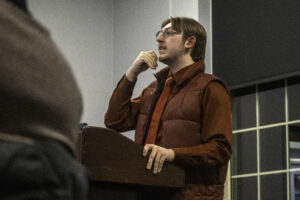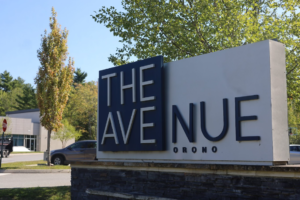OPINION: Of course we need safe and secure elections, but the current system in place is effective. There is no evidence of widespread voter fraud in Maine. Question 1 threatens the people’s voice by imposing unnecessary bureaucratic hurdles, with college students being one of the groups that could be disproportionately impacted.
As college students, we are often living away from home. Absentee voting is convenient, and sometimes the only feasible way to vote in our hometowns. Question 1 would put several restrictions on absentee voting. Among others, the new law would eliminate two days of absentee voting, prohibit requests for absentee ballots by phone or family members and ban prepaid postage on absentee ballot return envelopes.
As of right now, we can request an absentee ballot up to the Thursday before the election. Question 1 would change this rule so we can’t request an absentee ballot after the close of business on the seventh day before an election. For the upcoming election, that would be tomorrow.
Question 1 would also prohibit requests for absentee ballots through family members. In our first year of college, many of us are first-time voters. It can be really helpful to have someone give us a little push into exercising this right for the first time. In a time of life that is full of firsts, voting may feel like a low priority, yet it’s the start of a habit of good civic engagement that we maintain our whole lives.
Question 1 would also ban prepaid postage on absentee ballot return envelopes, meaning individual towns would no longer be allowed to decide for themselves whether to fund this initiative. Prepaid postage is used in other states and would make voting easier for students who might not have stamps around or use the postal service very often. Who does it help to ban it outright?
Those are just a few among 27 different proposed changes to Maine election law. So, to the people who say this question is just about Voter ID, it’s not. But let’s talk about those requirements, too.
The identification requirements proposed by Question 1 are very strict. According to the League of Women Voters, they would be among the strictest in the country. Unless you have one of three forms of military identification, your choices are a Maine driver’s license, a U.S. passport or a non-driver identification card.
As students, we likely use our MaineCard as our primary ID. But a student ID is not included under Question 1’s options. While driver’s licenses are convenient for those who drive, not everyone does. As for passports, only about half of Americans have one.
It is true that if this question is approved, it would be possible to get a no-cost non-driver identification card from the Secretary of State’s office. But how many college students, who don’t drive, are going to find transportation to the Bureau of Motor Vehicles to get a non-driver ID?
Proponents of Question 1 argue that it is already common to show ID in other facets of daily life, but our right to board a plane or cash a check is not enshrined in the Constitution. Our right to vote is. Anything that is going to make that harder should be viewed with a healthy dose of skepticism. If we were to pass Question 1, we’d better have a good reason.
But good reasons seem to be lacking. According to Voter ID for Maine Campaign Manager Alex Titcomb, this legislation is future-looking, not addressing an urgent problem. Why should we accept restrictive changes to election law to address a problem that, by the admission of the people championing those changes, doesn’t exist?
It’s easy to feel like your singular vote doesn’t matter. The more mind-numbing, tear-inducing bureaucratic hurdles there are, the less it will feel like it’s worth the trouble. But what happens when enough people come to that same conclusion? Quite simply, the more difficult voting becomes, the less the outcome will reflect the will of the people.
Even if you are personally willing and able to take these extra steps to vote, how many of your classmates would do the same?
Far from a “common sense” reform, Question 1 is threatening the very thing it claims to preserve – elections that reflect voter wishes. Vote no on Question 1.











